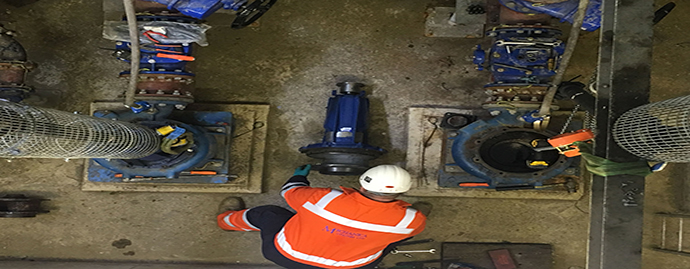| Start Date | End Date | Country | City |
|---|

 +966 920007771
+966 920007771

Objectives
Upon completion of this course, participants will be able to:
- Enrich knowledge on troubleshooting through various practical exercises carry out during the course (Specify the limitations to plant problem solving)
- Apply the methods of risk analysis particularly in process plant troubleshooting
- Identify various accidents in the process plant and know the causes, actions taken & lessons learned
- Discuss the risks associated with process troubleshooting and the applicable safety procedures to be followed.
- Describe how Heat Exchangers function
- Recognize typical problems and identify possible causes of Heat Exchangers
- Describe how fired heaters function
- Recognize typical problems and identify possible causes fired heaters
- Know Fuel and Air Systems and their operating problems.
- Identify the components of Flare System and its operating problems.
- Identifying physical principles and forces that occur in rotating equipment, focusing on pumps and compressors
- Using operating and troubleshooting techniques for pumps and compressors
- Identify the Impurities in Water.
- Know the Different Methods for Water Treatment.
- How to Control Cooling Water Quality.
- How to Control Potable Water Quality.
- How to Control Boiler Water Quality.
- How to Control Waste Water Quality.
- Understand and Identify the Operating Problems.
- Know the Different Types of Storage Tanks.
- Know how to Operate Storage Tanks.
- Identify the Hazardous Conditions and Safety Procedures for Storage Tanks.
- Define abnormal conditions such as high liquid level, heat loss, tanks getting dry, plugged outlets
- Handle abnormal conditions such as loss of power, loss of control, loss of air, shortage of man power.
Outlines
- Chemical plant Equipment Trouble Shooting:
- Heat Exchanges Operation and Trouble Shooting
- Shell and Tube Exchangers
- Double pipe Exchangers
- Indirect Heaters
- Air Cooled Exchangers
- Heat Exchanger Operation and Trouble Shooting
- Heat Exchanges Operation and Trouble Shooting
- Fired Heaters Operation and Trouble Shooting
- Performance Monitoring
- Fired Heater Operation and Trouble Shooting
- Gravity Separators Operation and Trouble Shooting
- Separation Process
- Principles of Separation
- Gravity Separation
- Phases of Separation
- Separation System Problems
- Factors Affecting Separation
- Separators Operation and Trouble Shooting
- Fractionators Operation and Trouble Shooting
- Principles of Distillation (Fractionation)
- Reflux
- Re-boiling
- Fractionators Operation and Trouble Shooting
- De-salter
- De-salter Operation
- De-salter Troubleshooting
- Pumps Operation and Trouble Shooting
- Basic Pump Hydraulics
- Calculating Total Head
- Horsepower Calculations
- Net Positive Suction Head (NPSH)
- Pump Performance Curves
- System Performance
- Operation, Control and Trouble Shooting
- Compressors Operation and Trouble Shooting
- The Theory of Compression
- Centrifugal Compressors Operation, Control and Trouble Shooting
- Reciprocating Compressors Operation, Control and Trouble Shooting
- Operation, Control and Trouble Shooting
- Utilities Systems Operation and Trouble Shooting
- Water Treatment Systems
- Introduction to Water Treatment
- Suspended Solids
- Dissolved Solids
- Dissolved Gases
- Industrial Water Treatment
- Primary Water Treatment
- Secondary Water Treatment
- Potable Water Purification
- Disinfections of Water
- Sterilization of Water by (Chlorine, Ozone, Chloramines)
- Introduction to Water Treatment
- Water Treatment Systems
- Waste Water Systems
- Main Sources of Pollution
- At the Production
- During Transportation
- During Refining
- De – Oiling of Water
- Purpose of De – Oiling
- API Interceptor
- Parallel Plate Interceptor (PPI) and Corrugated Plate Interceptor (CPI)
- Flotation Units
- Flocculation Units
- Main Sources of Pollution
- Fuel Systems
- Typical Fuel Gas System
- Typical Problems
- Pressure Variation
- Liquid in the Gas
- Change in Fuel Gas Composition
- Air Systems
- Instrument Air
- Typical Instrument Air Supply Systems
- Instrument Air Distribution Systems Operation and Trouble Shooting
- Utility Air
- Typical Utility Air Supply Systems
- Utility Air Distribution Systems Operation and Trouble Shooting
- Instrument Air
- Process Shutdown (PSD) and Emergency Shutdown (ESD)
- Normal Shutdown Procedures
- Process Emergency Shutdown
- Process Failures
- Utility failure
- Emergency Shutdown
- Fire
- Power Failure
- Instrument Air Failure
- Cooling Water Failure
Who Should Attend
- Process Engineers, Plant Forman, Section Heads, Plant Supervisors & technical staff involved in Chemical plant operations.
Duration
5 Days










